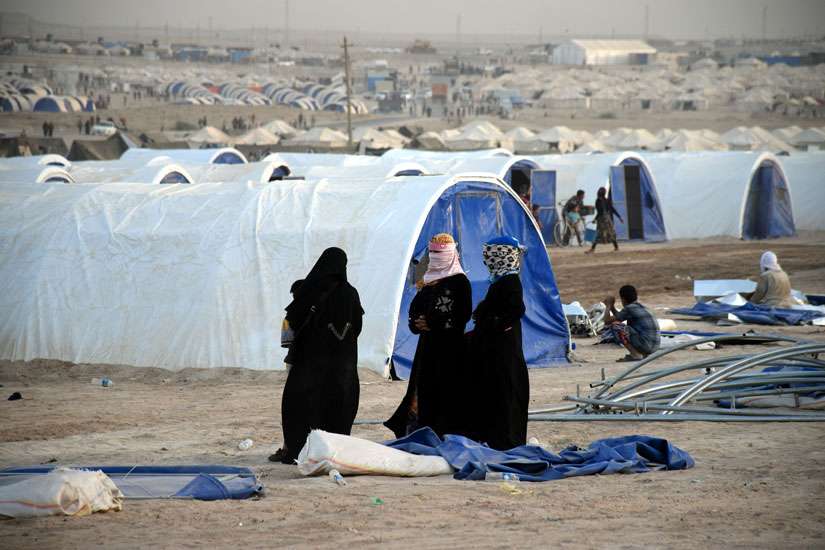"In seeking to respond effectively to the challenges posed by unprecedented movements of refugees, while respecting the legitimate concerns of societies and countries, let us never lose sight of the real men, women and children involved in this human drama," Archbishop Ivan Jurkovic, Vatican observer to U.N. agencies in Geneva, told the executive committee of the U.N. High Commissioner for Refugees.
Although positive international agreements about protecting the rights of refugees and migrants have been made, the international community "must also be realistic about implementation," the archbishop told the committee Oct. 4.
"Repeated promises and pledges have been made, but effective and durable implementation has been sorely lacking and the rights of refugees, as laid out in various international instruments, continue to be violated," he said.
The violations, he added, "risk provoking cynicism and the slide toward a true 'globalization of indifference.'"
Conveying the Vatican's concern on the plight of the over 65 million people forced to flee violence, war and persecution, Archbishop Jurkovic said many are often exploited or lacking basic necessities.
While the international community must not lose its resolve "in the face of these seemingly insurmountable challenges," the archbishop said, it also must acknowledge that "the increasing trend shows no sign of slowing down."
Even in countries that do accept refugees, he said, the rights and needs of refugees are not always respected fully.
"In many countries, refugees are not allowed to work, while their movements are limited to the immediate surrounding of camps, often located in remote regions," he said.
Unable to work, they are dependent on food aid, the archbishop said. But budget cuts have meant insufficient food supplies, which "has led to malnutrition in camps that for years have been administered by the United Nations."
Archbishop Jurkovic said guaranteeing the existing rights of refugees and additional financial investments would allow refugees to become "agents of development" and not "just recipients of aid or merely tolerated guests."
Political will and global leadership, he added, are necessary in finding solutions to the growing crisis and giving hope to refugees through "solidarity, compassion and protection."


